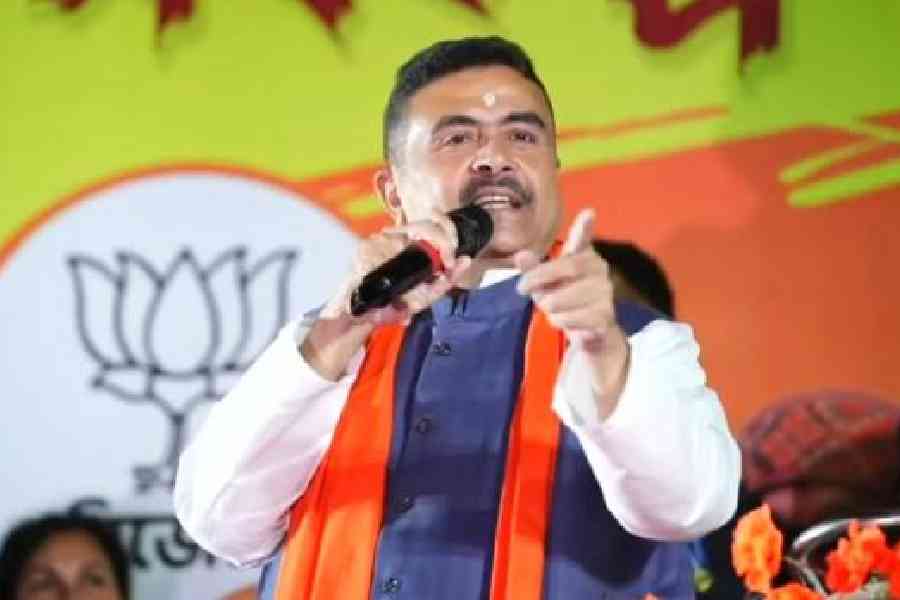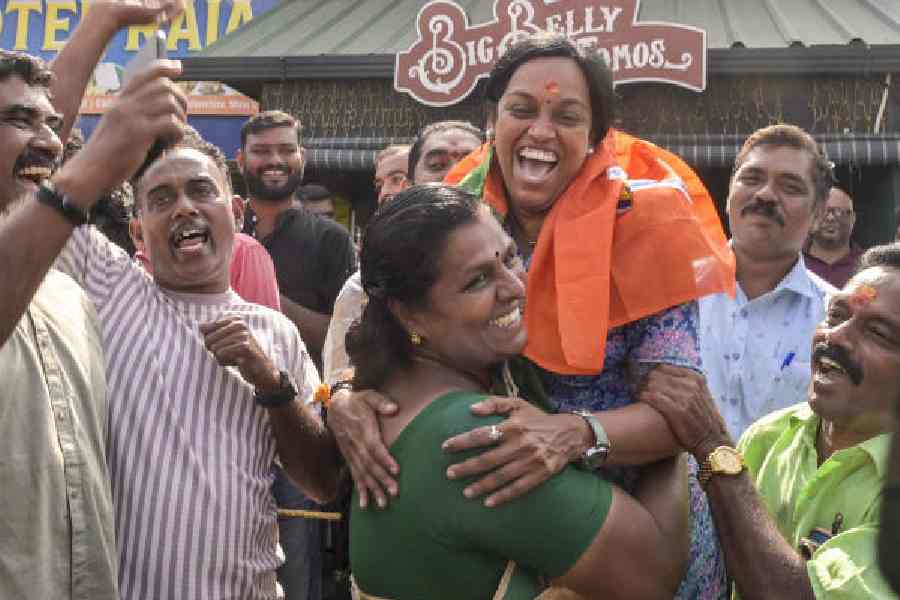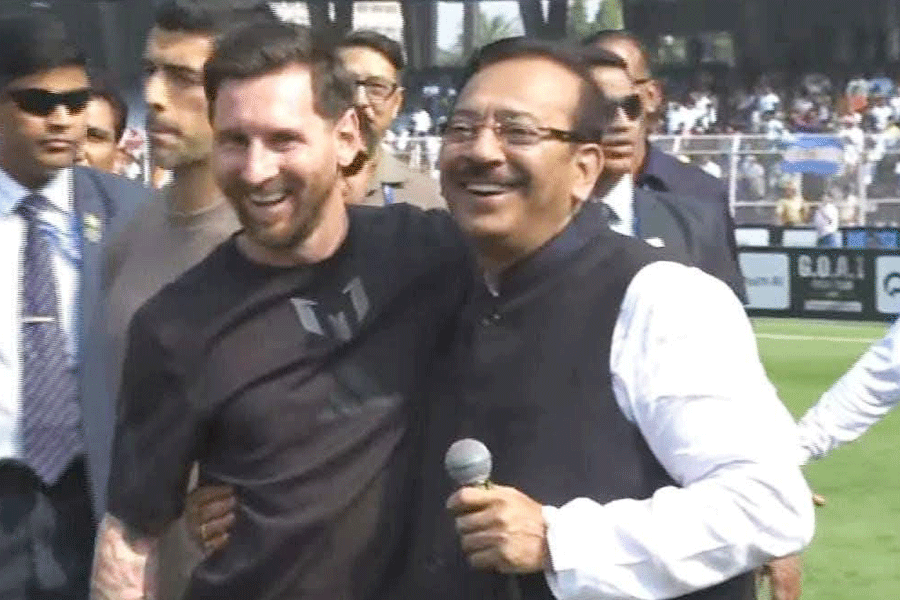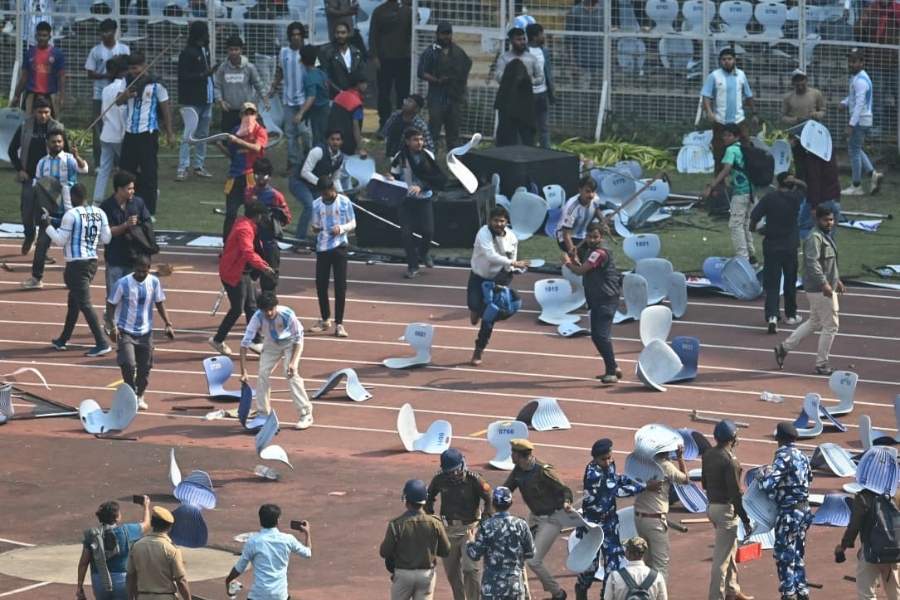 |
| Bappi |
Mumbai, Oct. 31: Music director Bappi Lahiri has sued hip-hop singer and music impresario Dr Dre for plagiarism.
The lawsuit, filed in a district court in Los Angeles on Tuesday, charges the American producers, including Dr Dre, of the hit single Addictive by Truth Hurts with using his song Kaliyon ka chaman jab banta hai from the film Jyoti without permission.
Lahiri has charged them with practising “cultural imperialism” by not crediting Third World artists. Lahiri also sought a halt to the further sale of the album Truthfully Speaking on Aftermath Records, his lawyer said in the US.
The album has sold about 6,00,000 copies since its release in June.
Addictive was released as a single and became a Top-10 hit.
Sa Re Ga Ma, the record company that had released the music of Jyoti, a 1981 film in which the song was sung by Lata Mangeshkar, has also filed in a suit in the US claiming damages. “We filed a suit on October 12,” said Aveek Mitra of the record company, but declined to comment on Lahiri’s case.
This is the first time that someone from the Indian music industry has sued a foreign music company for plagiarism.
The other defendants named in Lahiri’s lawsuit includes Interscope Records, the parent company of Aftermath headed by Dr Dre. Universal Music, the world’s largest music company and a unit of Franco-American media and utilities giant Vivendi Universal, is also named.
Dr Dre’s lawyer, Howard King, said Lahiri was trying to capitalise on the hip-hop star’s celebrity. He added that his client had little to do with the production of Truthfully Speaking. But Truth Hurts, whose real name is Shari Watson, recently told MTV that Dre had remixed Addictive, according to an article on the MTV web site.
Lahiri alleged that the producers of Addictive lifted four minutes of the original recording by Lata Mangeshkar. “They literally superimposed their own drum track and lyrics over the beat. It’s not just a small loop,” claimed Lahiri’s lawyer Anthony Kornarens.
“It’s our opinion that the label simply took it for granted that Hindi music was something they didn’t need pay for. That it could be used simply at will,” Lahiri’s lawyer has said.
It is little ironic. Many in the Indian music industry were happy that Lahiri pushed his case. But others feel it is strange that Lahiri should pull up another for lifting, something the music director has been charged with all his life.
“What cultural imperialism? We are very lucky that the American music companies haven’t taken a serious look at us. Before accusing others of lifting music, India should acknowledge what it is borrowing,” says Ehsaan of Shankar-Ehsaan-Loy of Dil Chahta Hai fame.
“It is a little strange, because if you look deeply enough, may be you will find this song too was ‘inspired’ by a foreign tune,” says another well-known music director.
“What cultural imperialism?” repeats Bali Brahmbhatt. “What is the point squabbling about a little tune here and there? It doesn’t make sense when the music scene has become like a tennis match — while we are taking from them, we are also lending them our music,” says Brahmbhatt, whose number Amma Dekh shot to the top of the charts.
“So much sampling goes on both sides. If Anu Malik alone has done six versions of Macarena, a lot of sitar and tabla are ‘sampled’ in the West, any viewer of movies, especially espionage films, will say,” says Brahmbhatt.
“Sampling” is the practice of digitally extracting recorded passages and inserting them into new recordings.
Singer Abhijeet says Lahiri has done a good thing by filing a suit, but adds that the music director himself didn’t do the right thing by lifting tunes. “But he at least only used the tunes, making his own new songs. But Truth Hurts has used the song directly,” says Abhijeet.
In another ironical twist, a Hindi-pop cover version of the Kaliyon ka chaman song, put together after the Truth Hurts number made it to the top and sung by Shashwati with a video featuring another hot babe, has climbed to the top of the Indian charts, but nobody can do anything about it.
“After two years of the release of a number, virtually anyone can sing a cover version,” says Mitra of Sa Re Ga Ma. “All the new singer has to do is to inform the record company. This is the real loophole in the copyright laws,” he adds.











